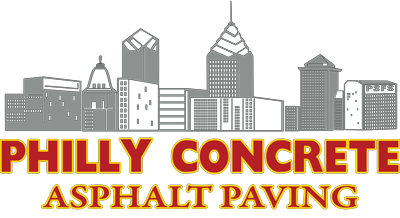When it’s time to install a new driveway at your home or business, chances are, you’ll find yourself choosing between concrete or asphalt. These two materials are the most popular for driveways, and each comes with specific advantages and drawbacks. Both are durable and will last for years, if taken care of properly. If you’ve never had to make this particular decision before, you might wonder how to choose between an asphalt or concrete driveway in Philadelphia, PA. Read on for an overview of what each type has to offer:
Concrete driveways
- More aesthetic choices: With asphalt, you’re fairly limited in design, but concrete offers plenty of different visual choices. For example, you can stain, tint or paint your driveway a variety of colors. You can also add texture by stamping or brushing the concrete, which can recreate the look of brick and stone walkways.
- Takes longer to cure: Concrete driveways take about a week to cure before you can drive on them, which means you’ll be parking on the street until it’s ready. If that’s a major inconvenience in your neighborhood, you might want to opt for an asphalt driveway.
- Suffers in cold climates: Concrete is prone to cracking, buckling and warping in cold temperatures, if you don’t properly winterize it beforehand. Road salt can cause stains and pitting, so if you choose concrete, you’ll need to give it some extra care during the winter.
- Stains more easily: Since concrete is generally lighter than asphalt, it can stain more easily. You can seal your concrete, but overall, you’ll need to be vigilant about degreasing and protecting your driveway from stains.
- Needs fewer repairs: Finally, concrete tends to require fewer repairs than asphalt, especially if you’re vigilant about keeping up with your maintenance. However, it’s more difficult to repair than asphalt.
- Lasts longer: Concrete can last about a decade longer than asphalt.
Asphalt driveways
- Easier to repair: Asphalt driveways are easier to repair, but they require repair more often. Asphalt is a softer material. However, filling cracks and holes blends in better than with concrete repairs.
- Drive on it sooner: You’ll be able to drive on your asphalt driveway within 48 hours, unlike concrete.
- Requires sealing every few years: Asphalt requires resealing every few years, which protects the surface and restores its jet-black appearance.
- Suffers in the heat: Finally, asphalt driveways don’t do well in high heat. They can soften in hot temperatures, and the re-hardening process may cause them to crack or sag.
Whichever type of driveway you pick, they’re both durable and attractive options. It often comes down to aesthetics and maintenance considerations—be sure you understand what kind of repairs and maintenance you’ll need to do to keep your driveway in great shape.
If you need help choosing the best driveway for your house in Philadelphia, PA, the team at Philly Concrete & Asphalt Paving, Inc. can help. Reach out to us today for more information about pricing, maintenance and installation concerns—we’d be glad to schedule a consultation to discuss your project!

